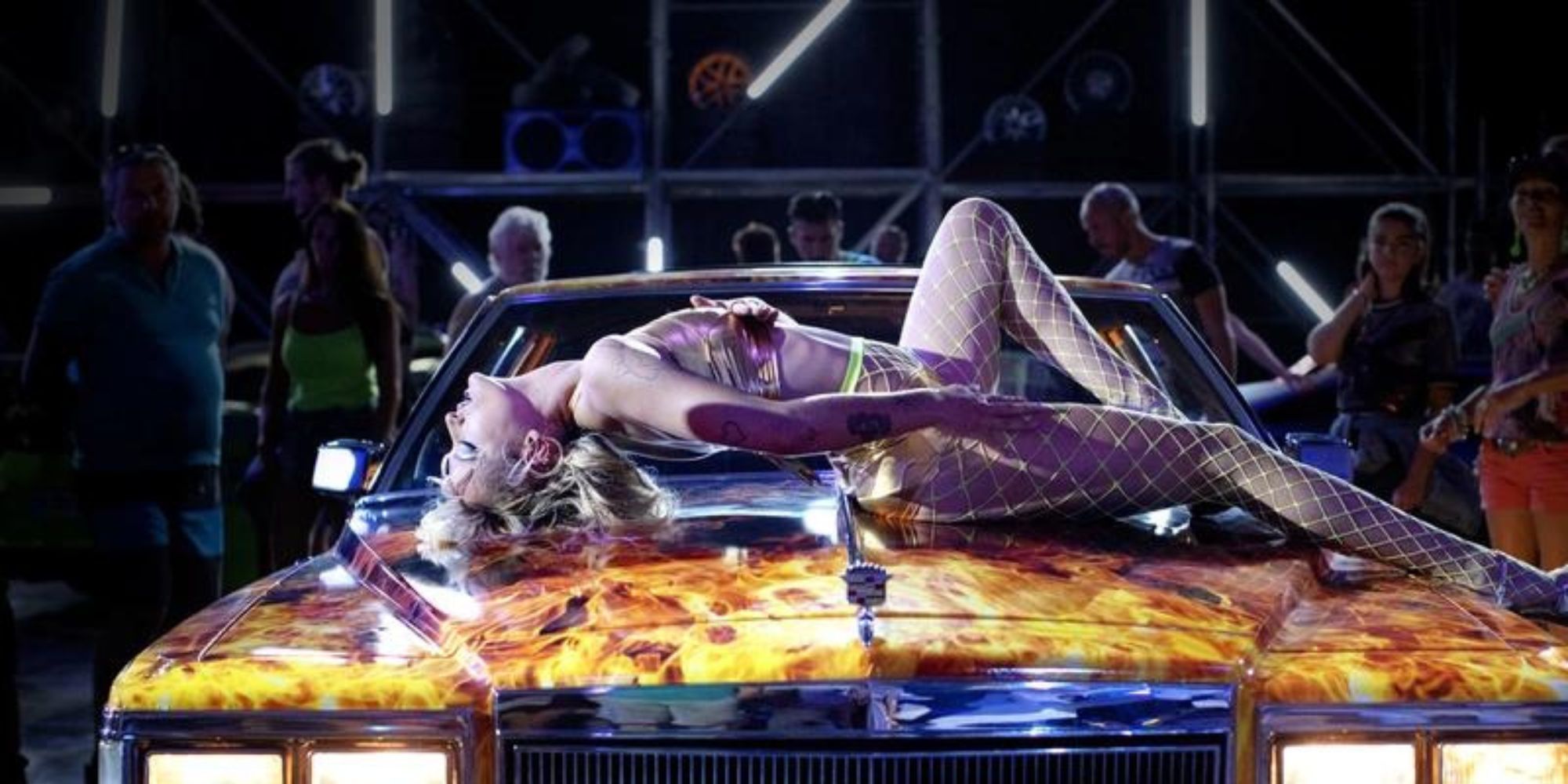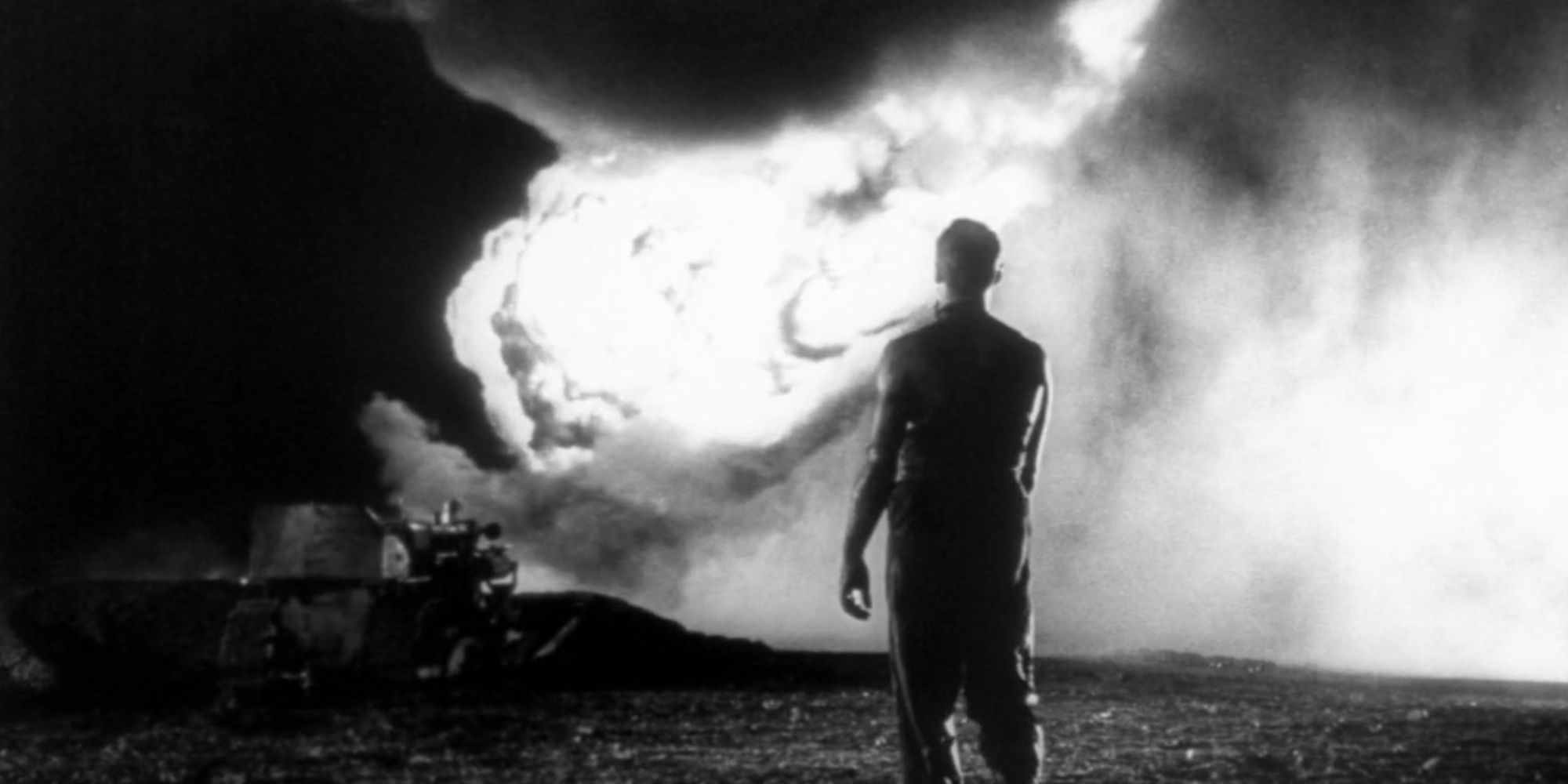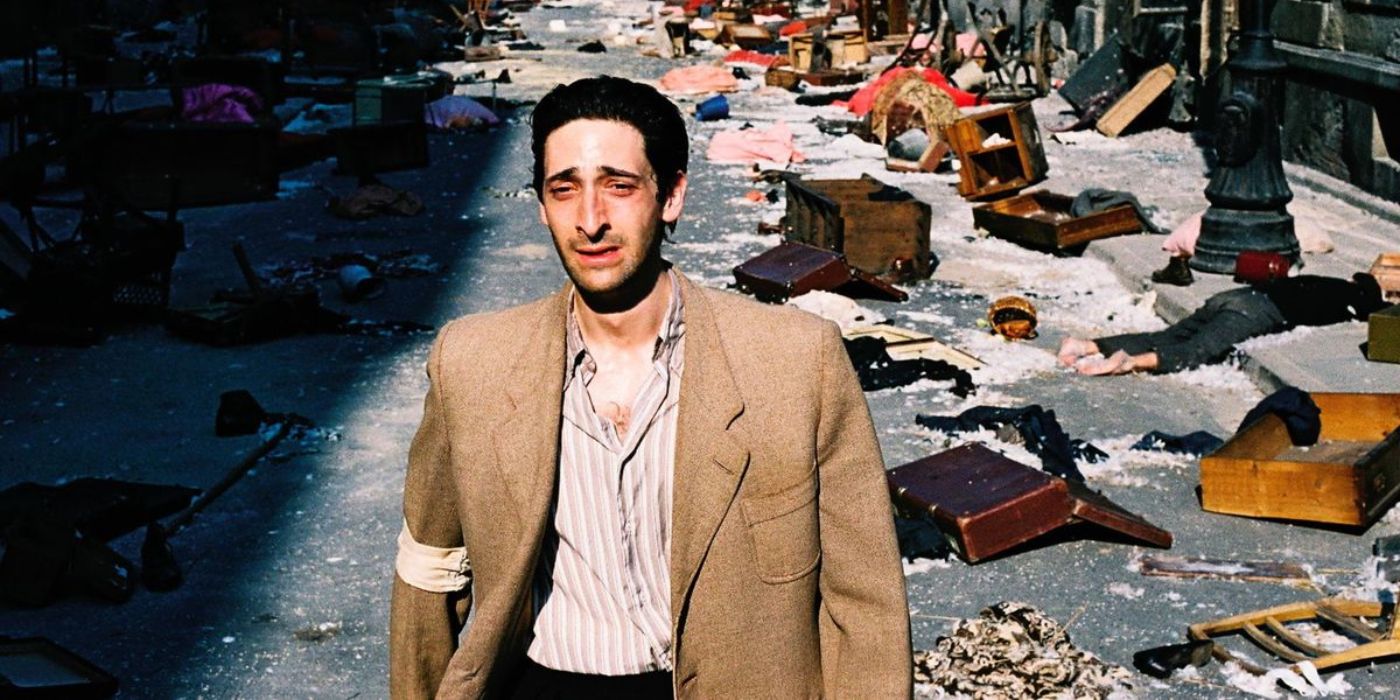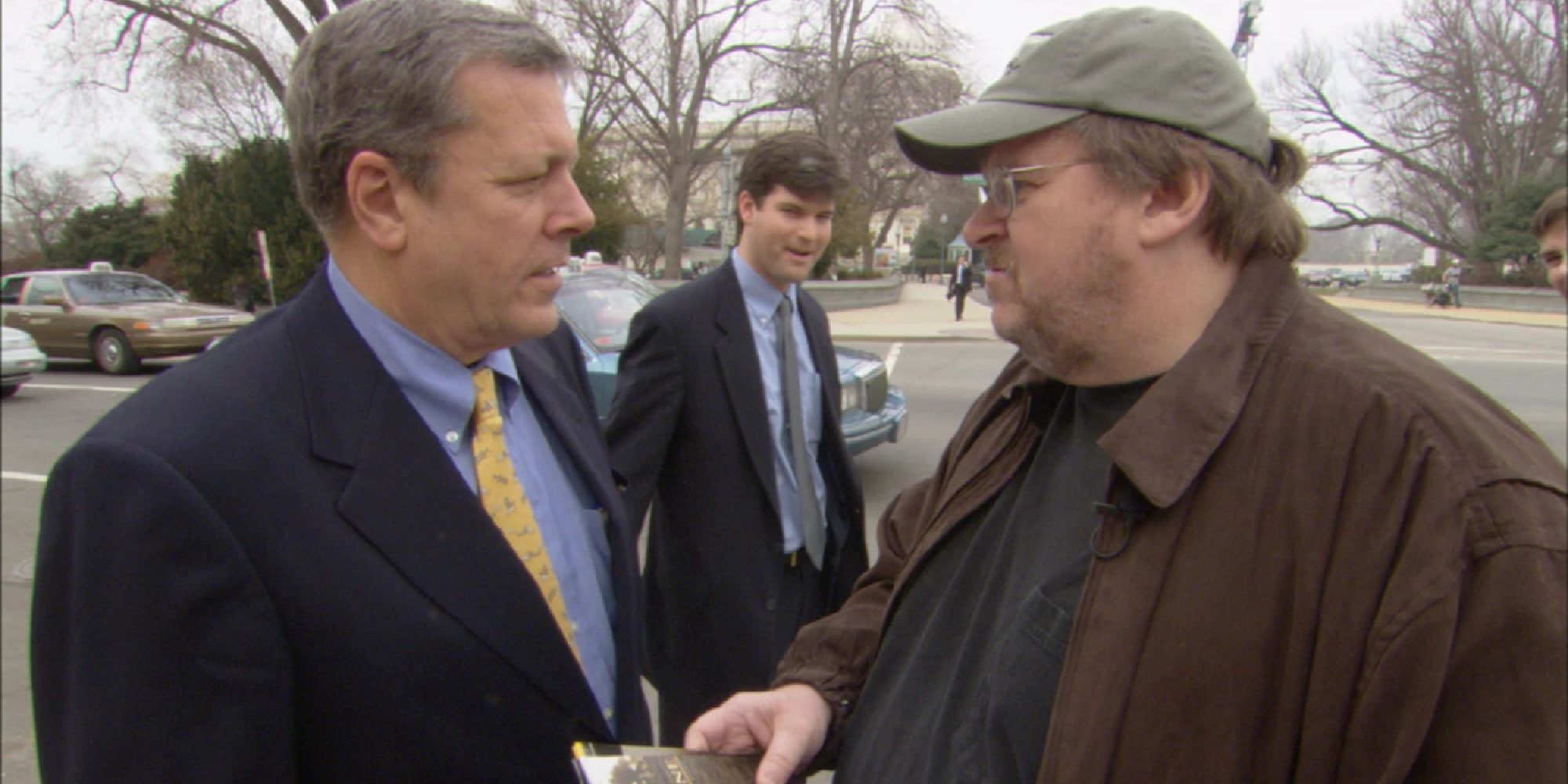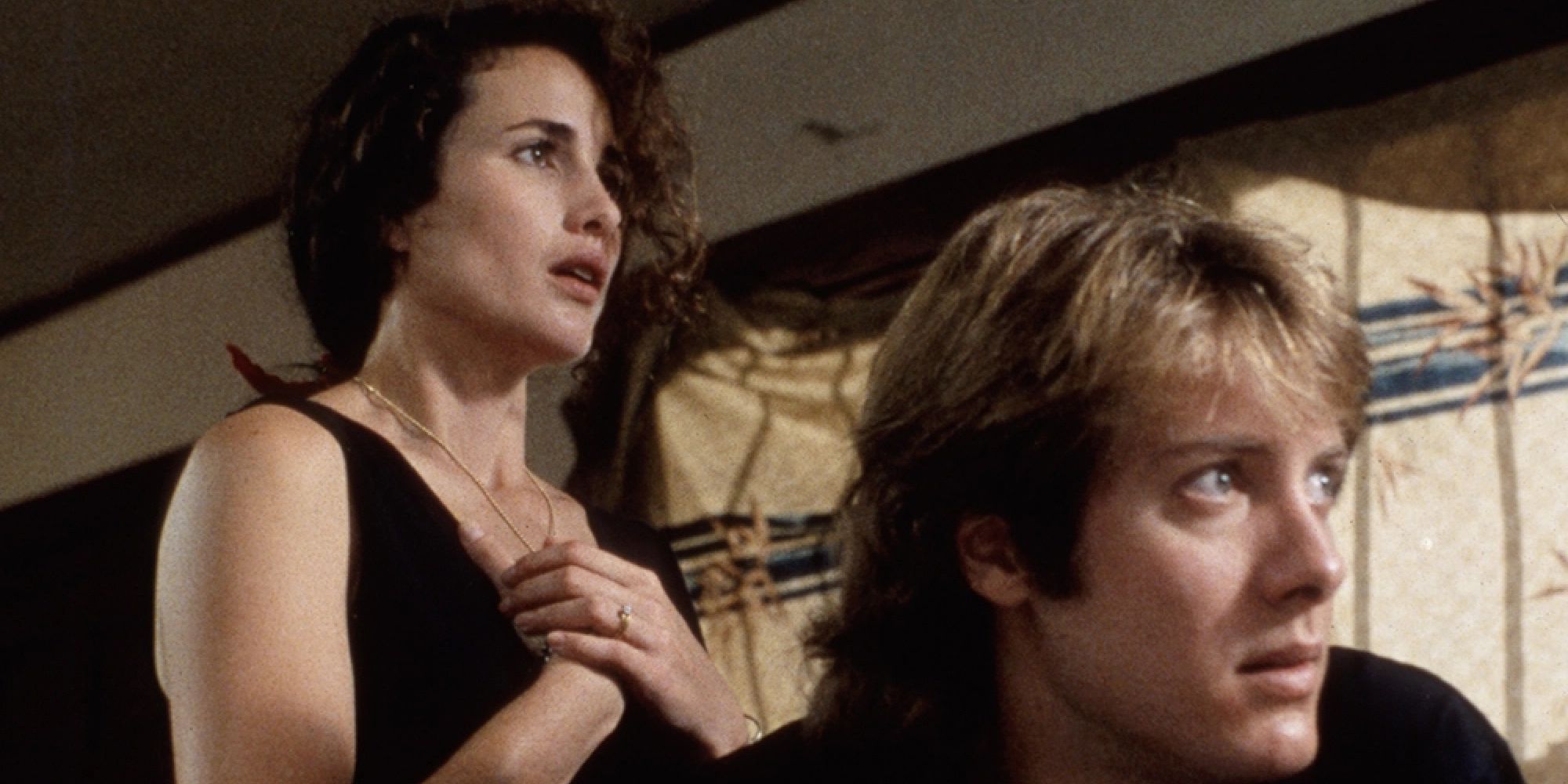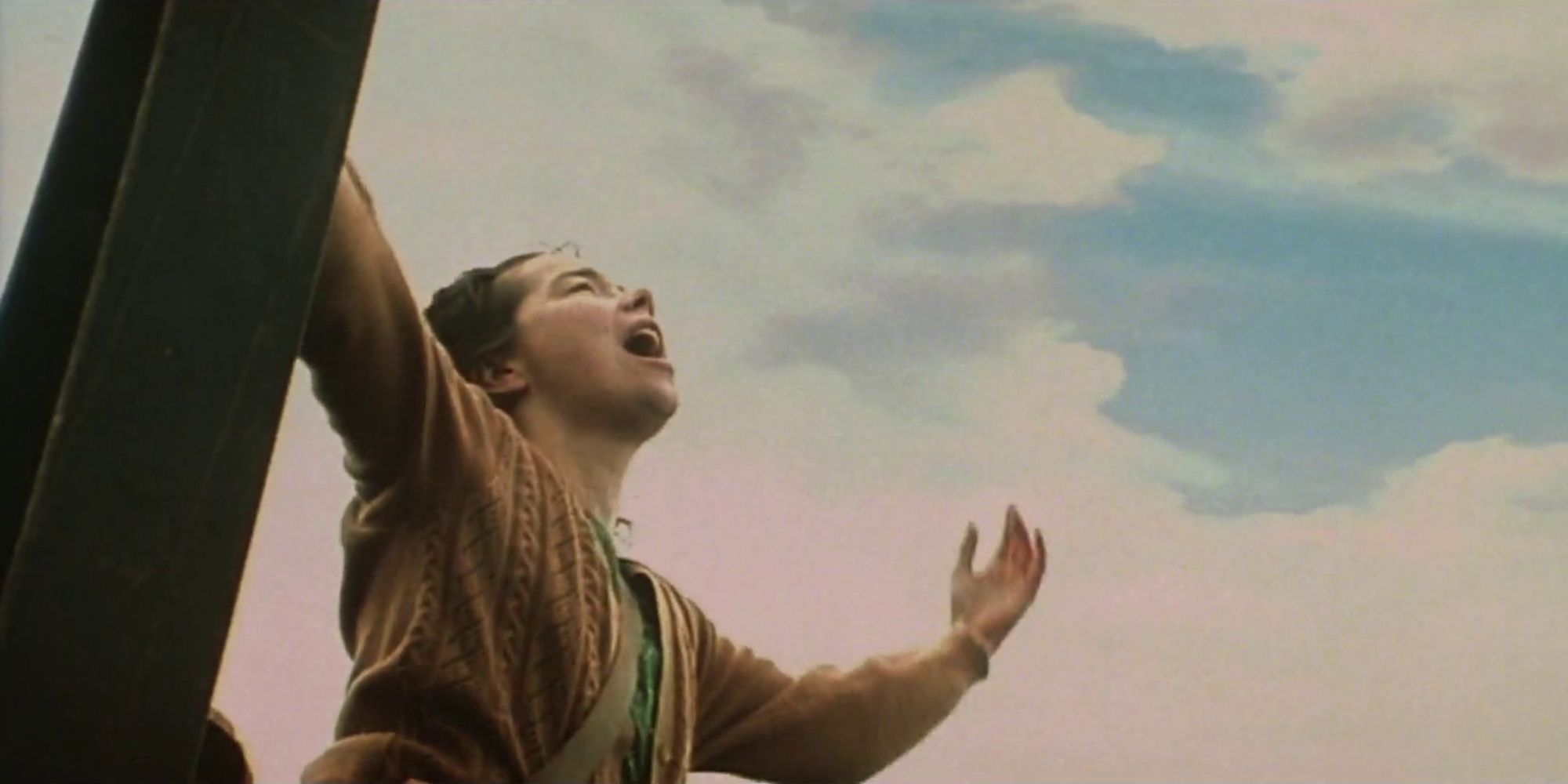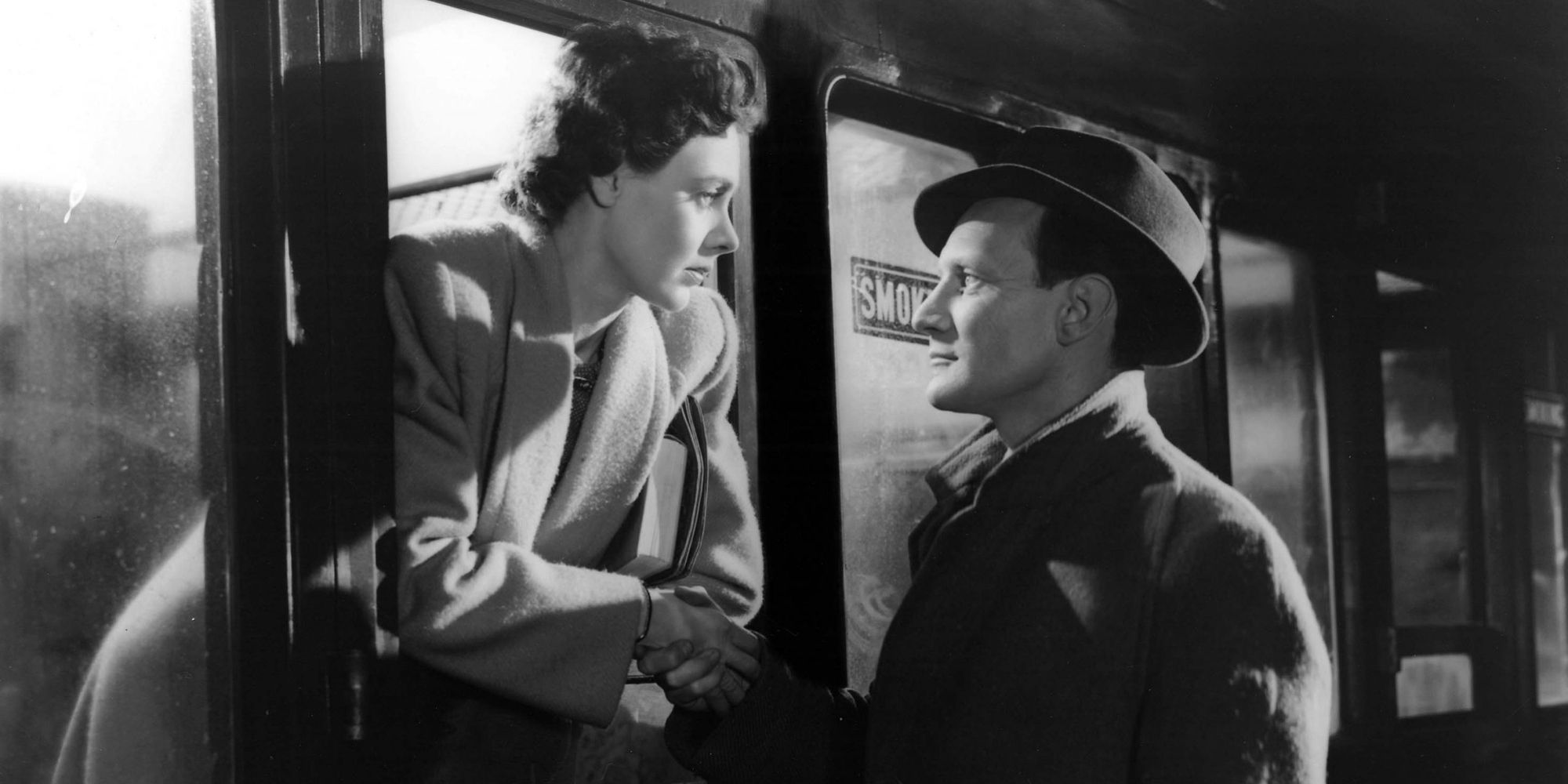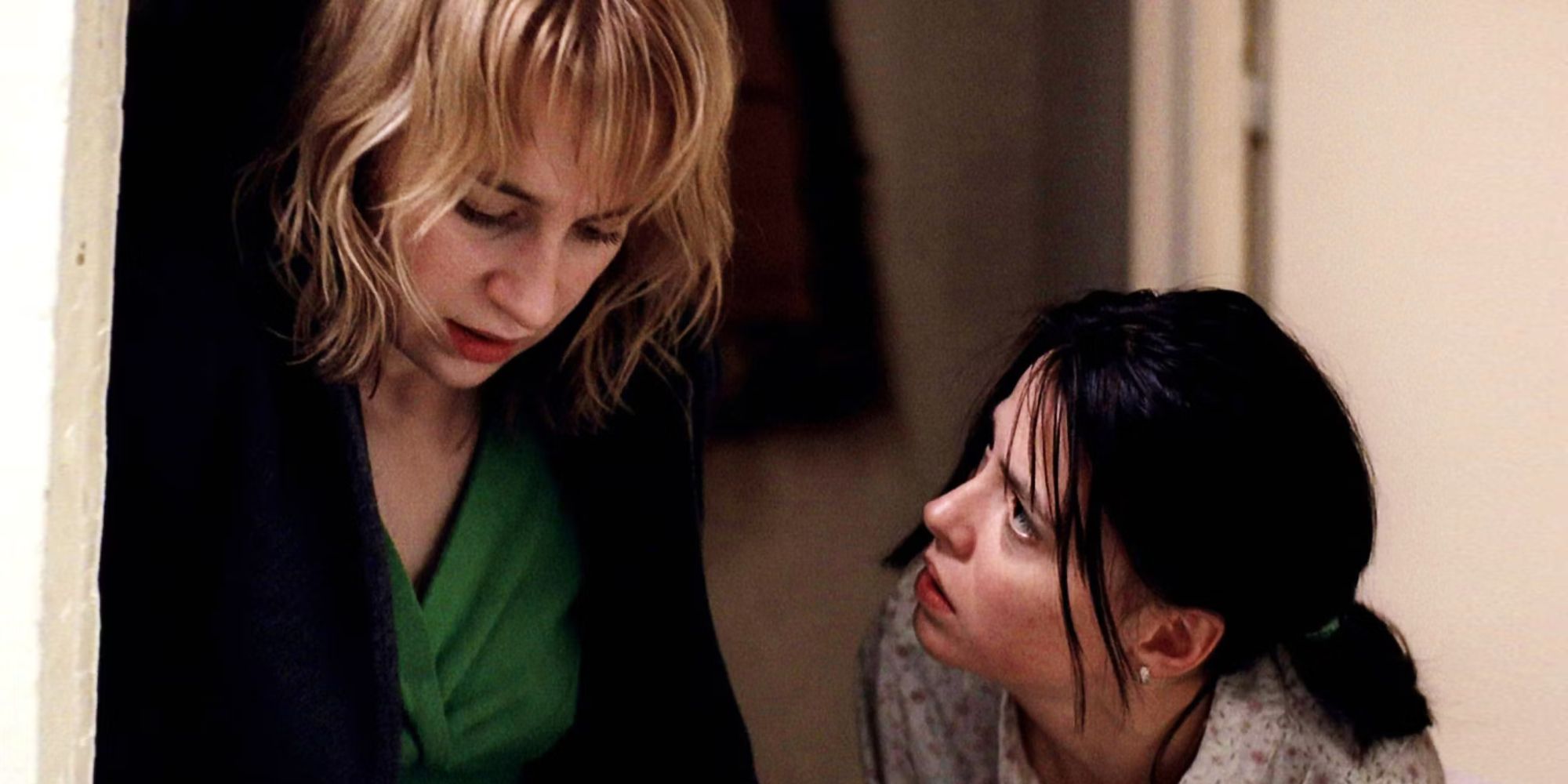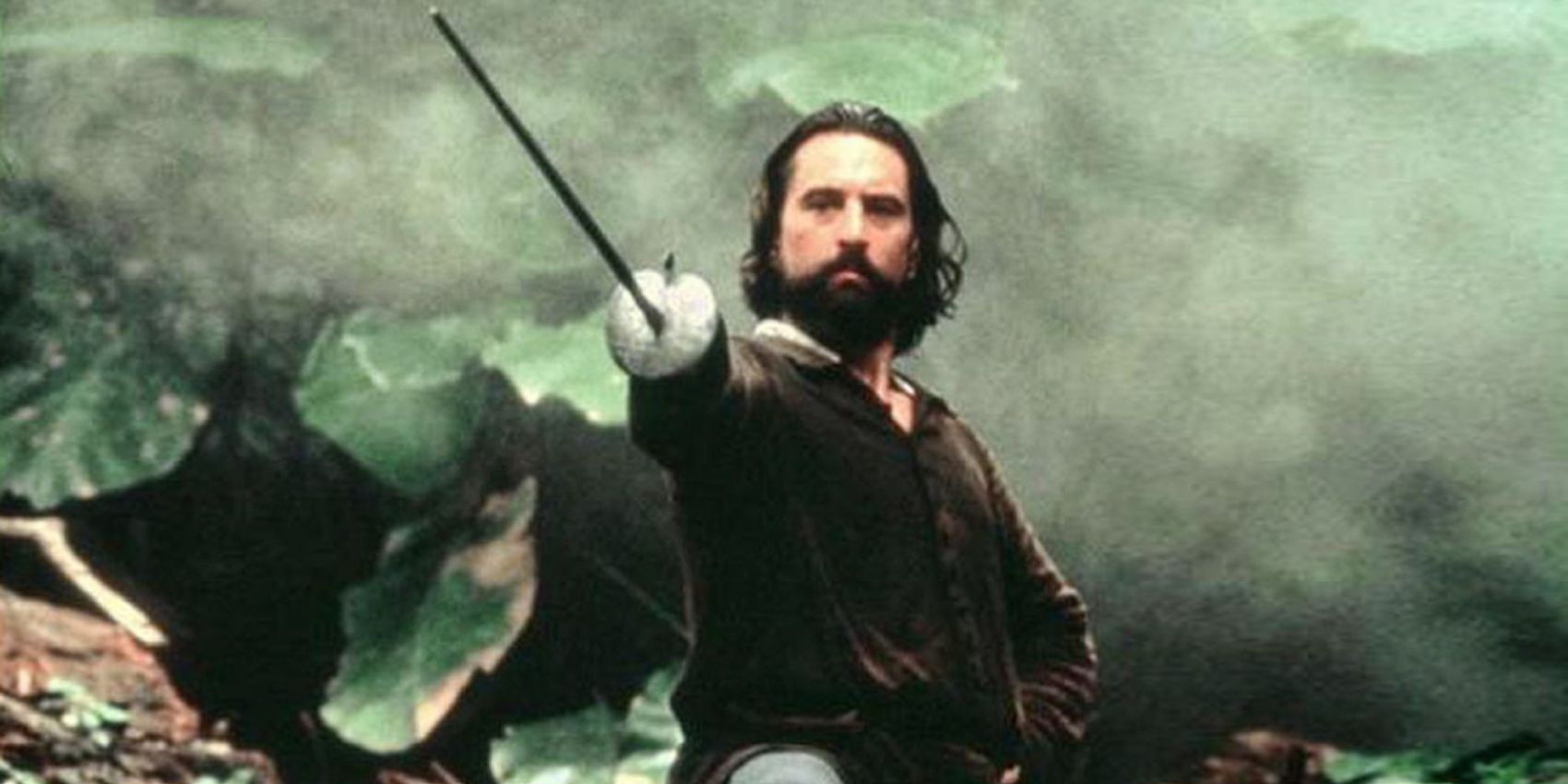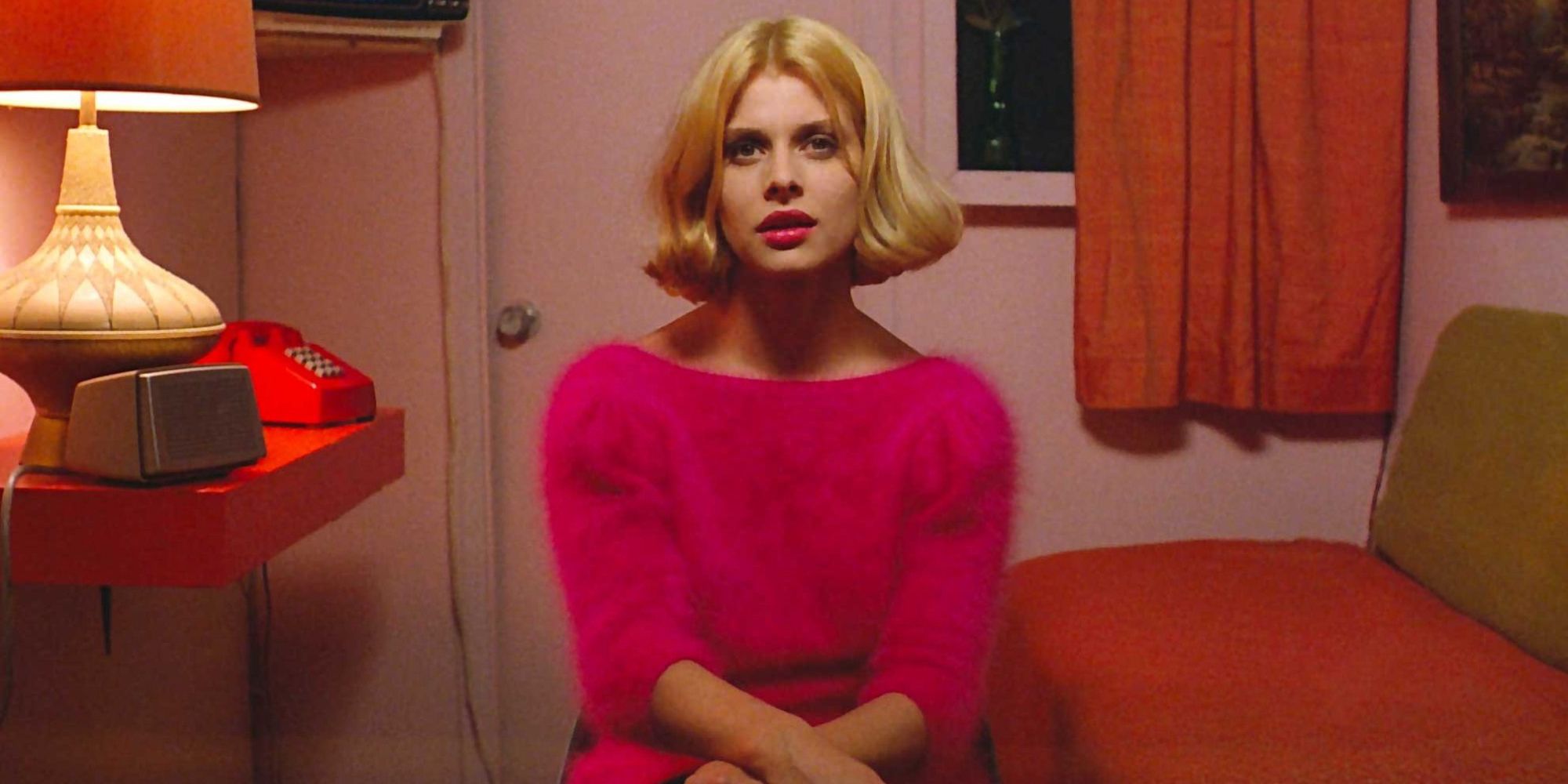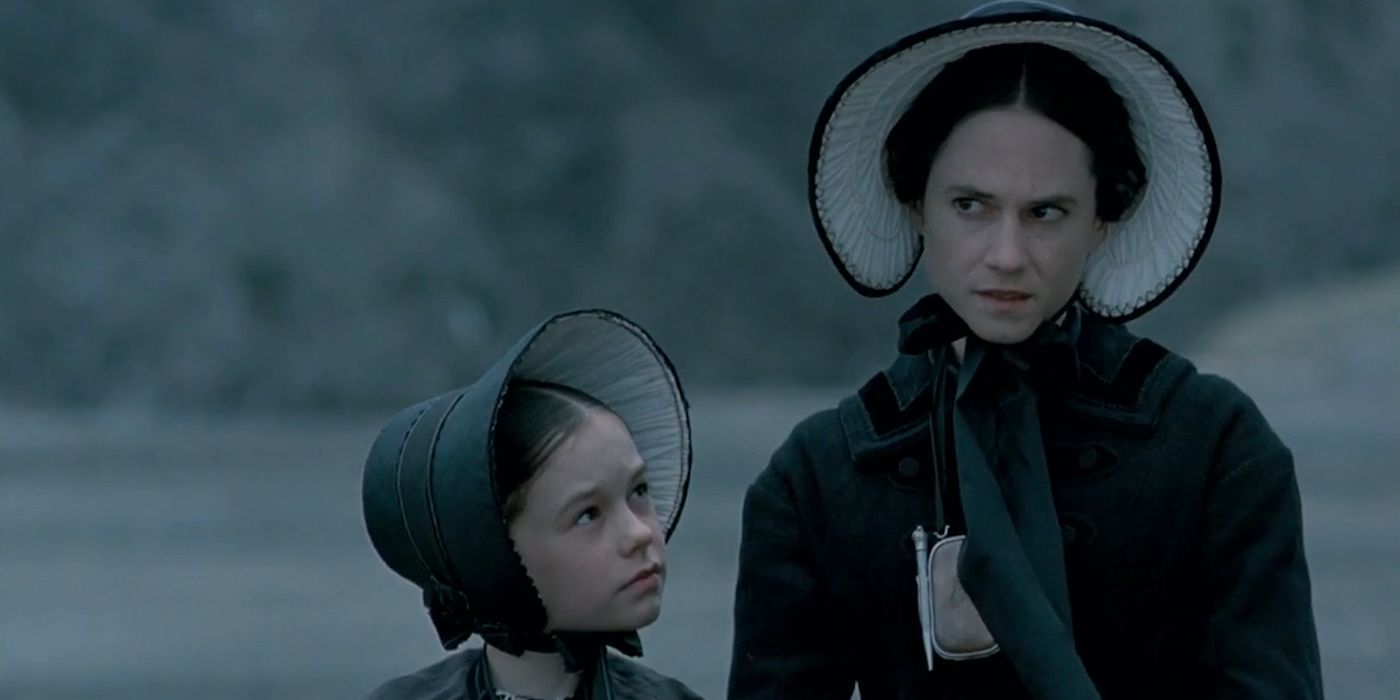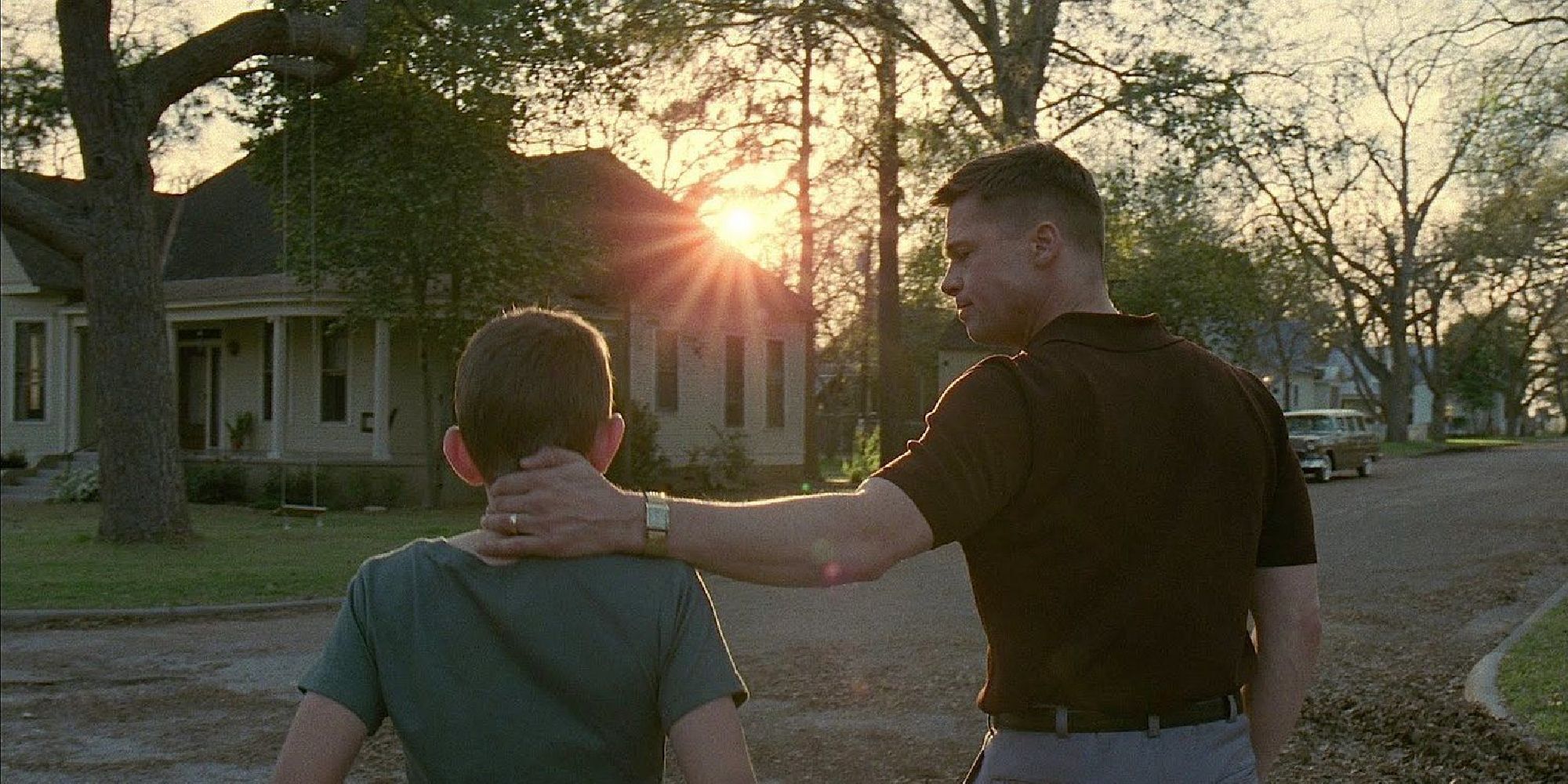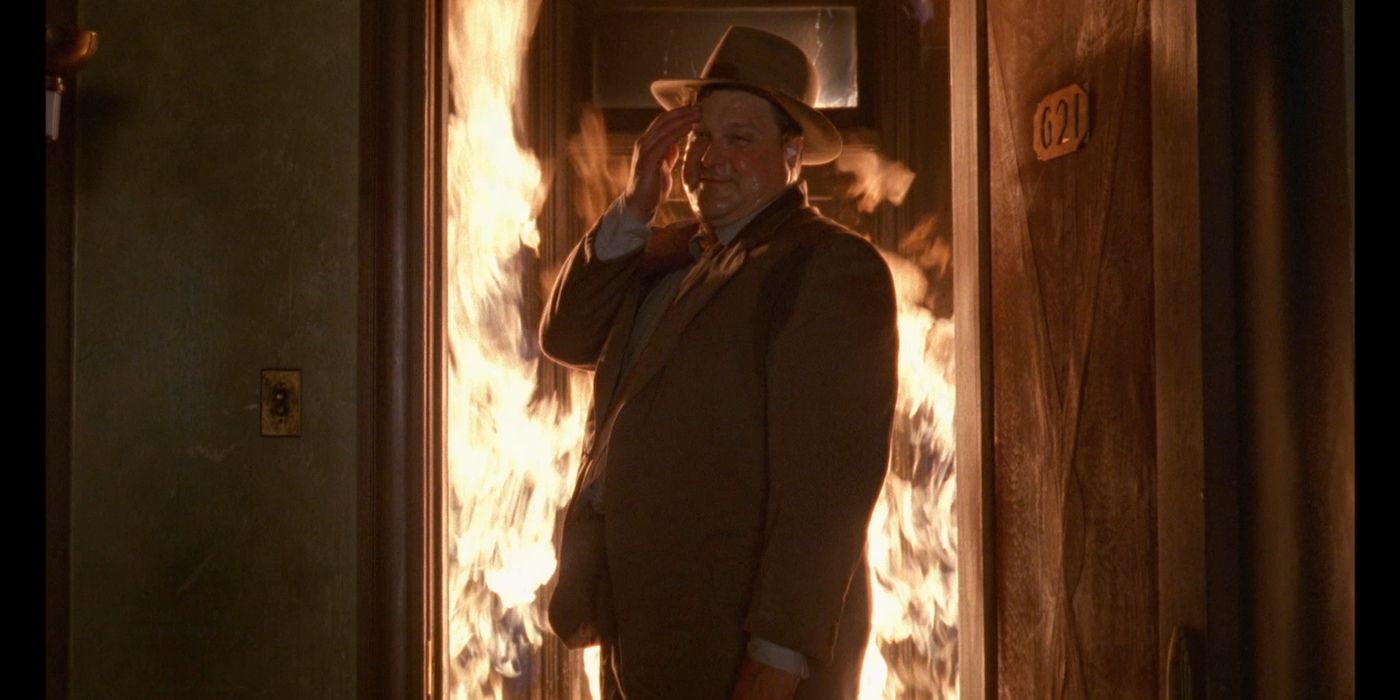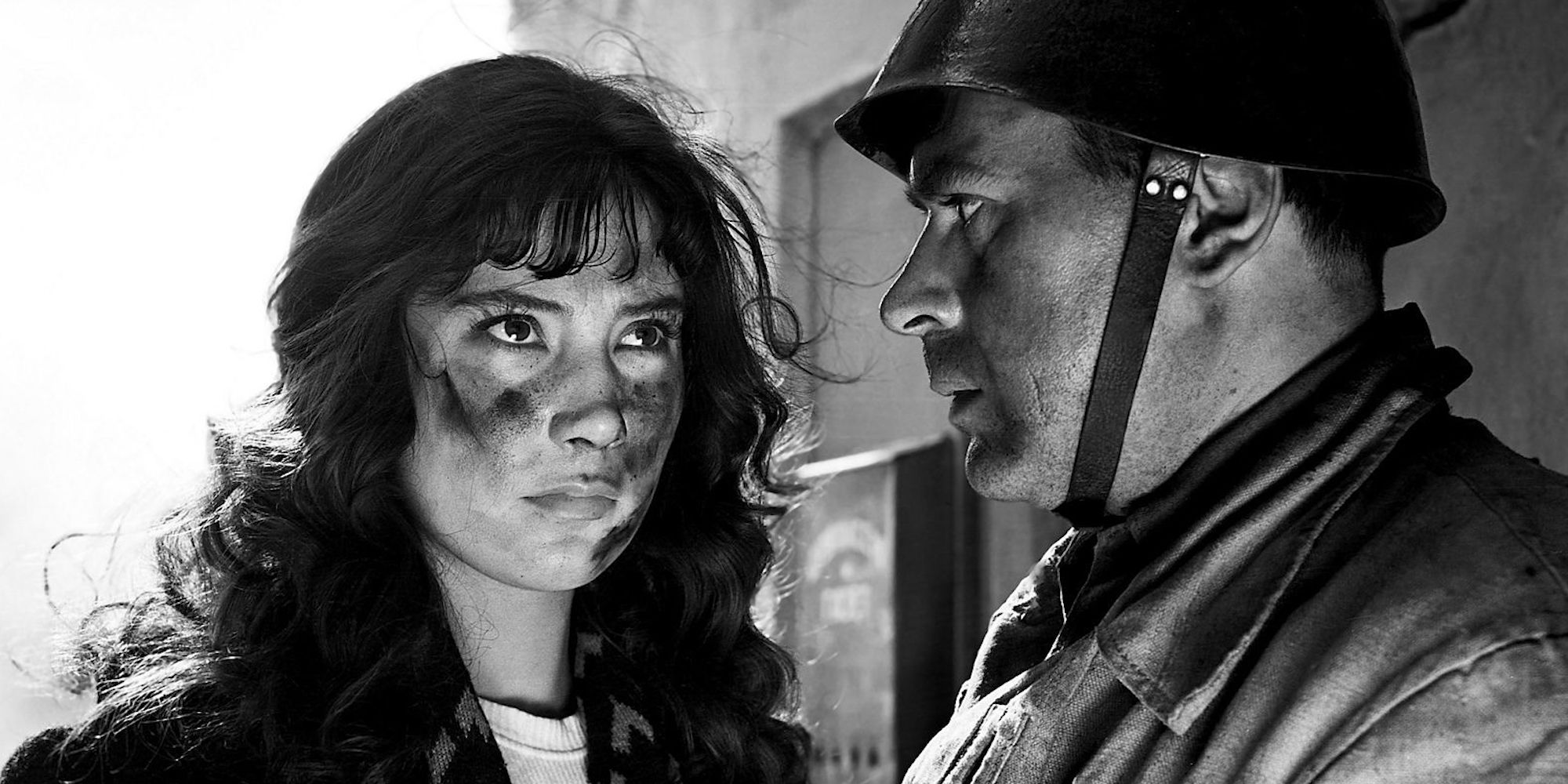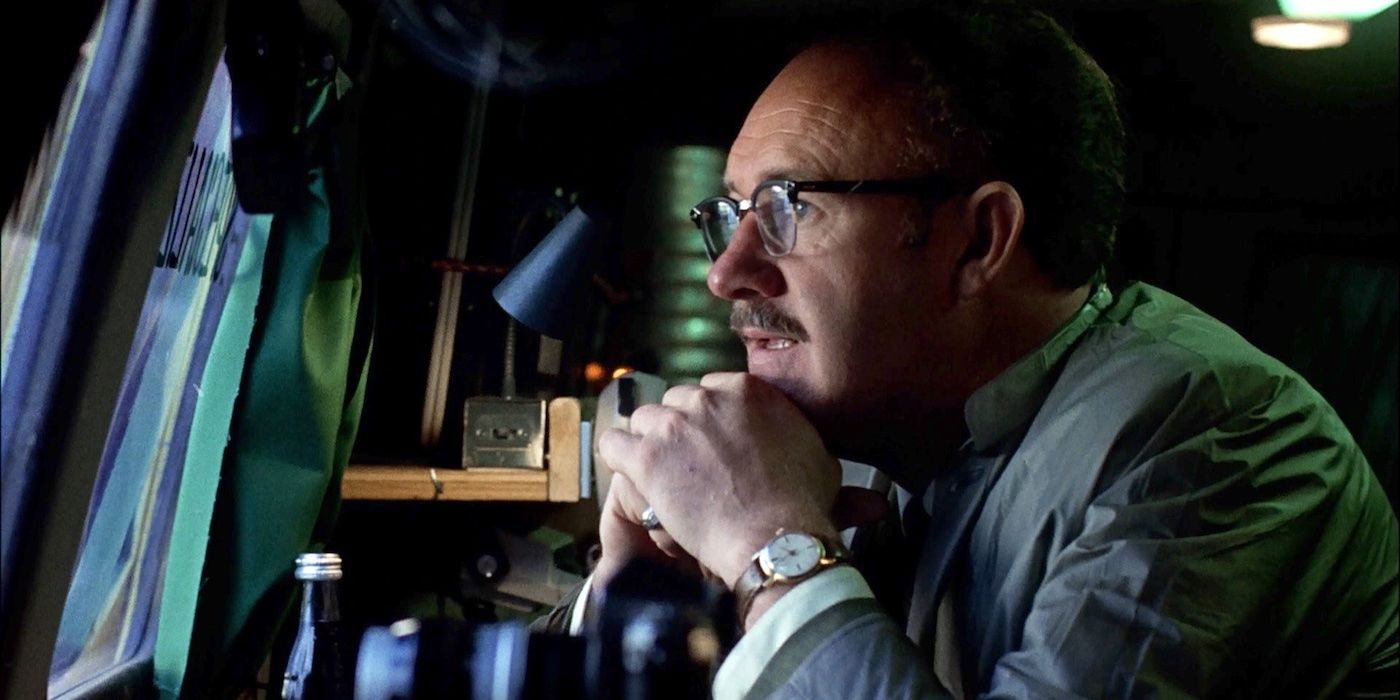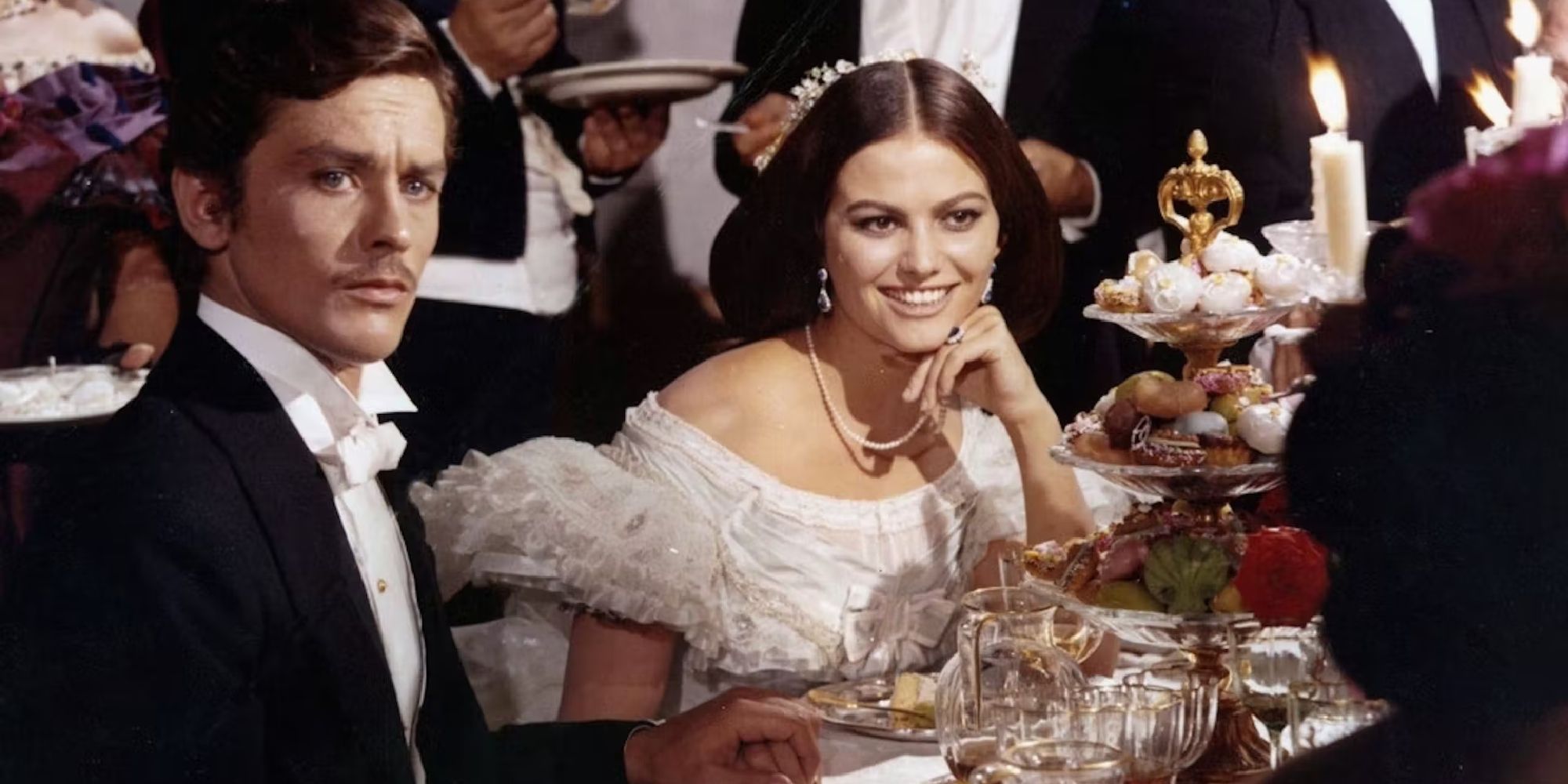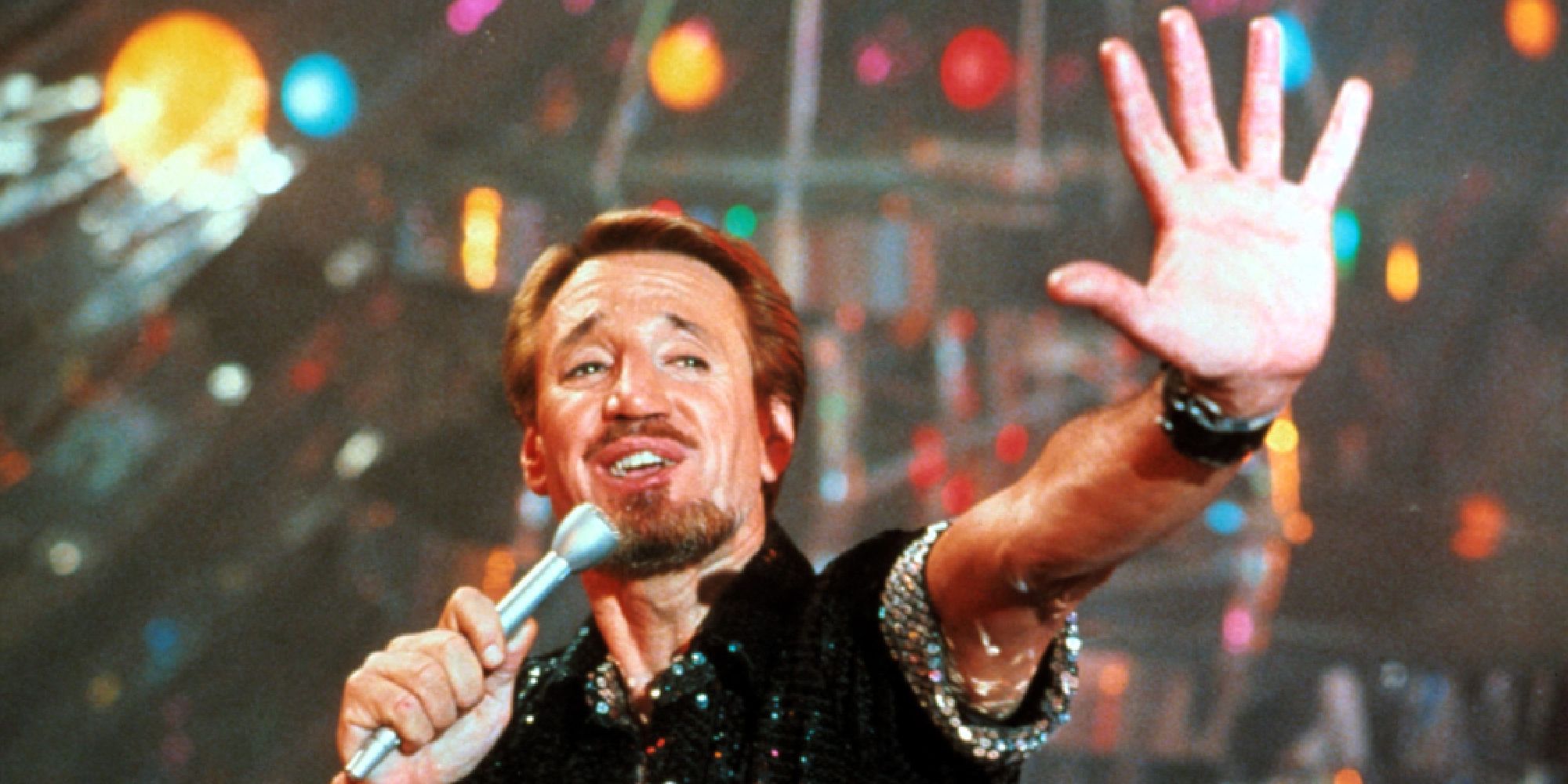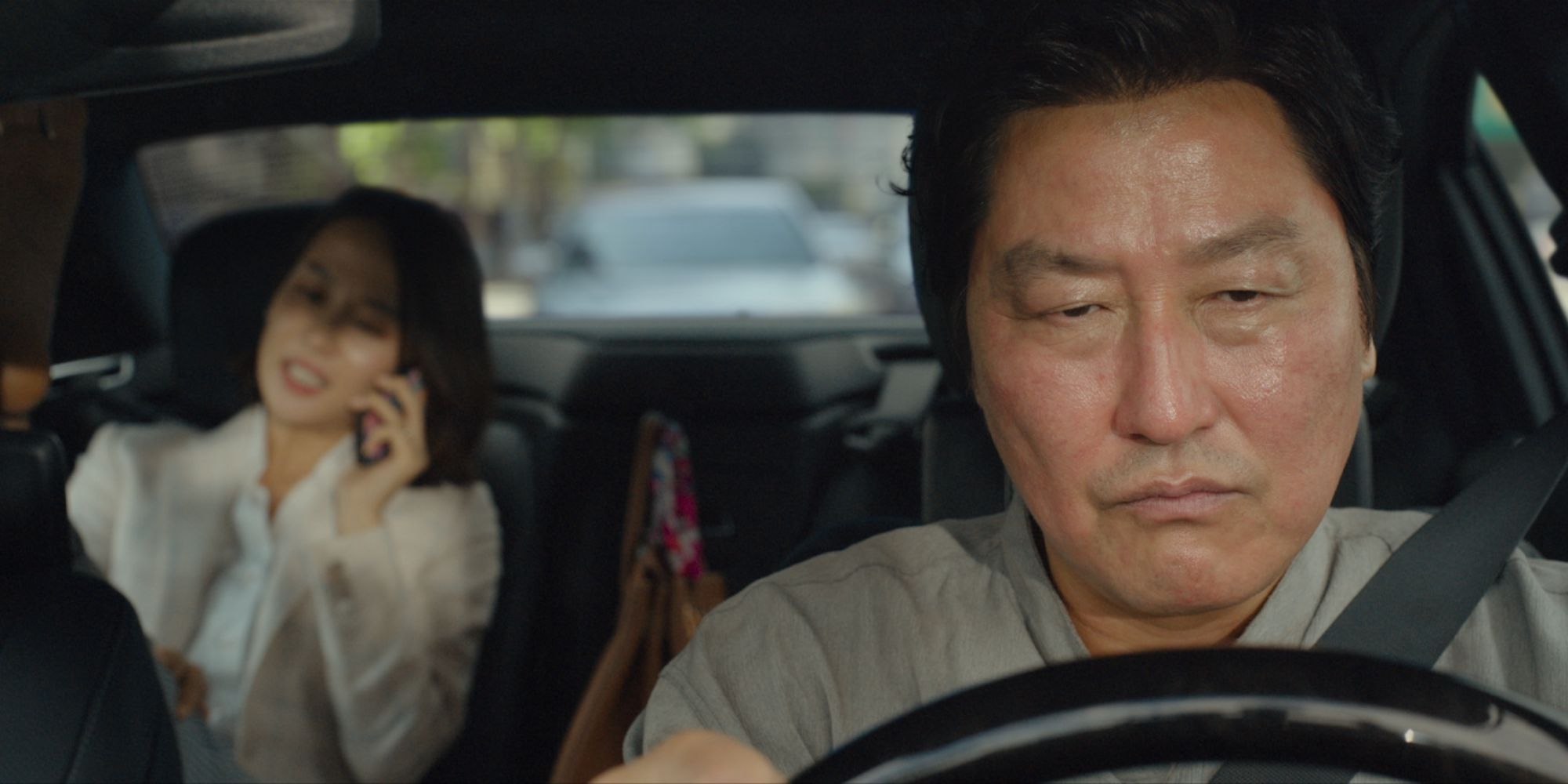Few prizes in the world of film are quite as prestigious as the Palme d'Or (or "Golden Palm"), which is given to the best overall film at the Cannes Film Festival every year. Though the Academy Award for Best Picture might be better known in English-speaking countries, the list of Palme d'Or winners is overall a little more varied. There have been numerous English-language and/or American movies that have won, but it has recognized far more international films than the Best Picture Oscar has.
The variety of winners proves eclectic, and similarly surprising is the history of the award itself. The Cannes Film Festival was first held in 1946, but the types of awards varied from year to year until 1955, when the top prize began being formally called the Palme d'Or instead of the Grand Prix. However, between 1964 and 1974, it went back to being called the Grand Prix. Then in 1975, it was once again the Palme d'Or, and has stayed that way ever since. Confused? Don't worry! For ranking purposes here, any film that won the top prize (either the Grand Prix or, more frequently, the Palme d'Or) is considered to be eligible, with the best of the best winners listed below from great to greatest.
25 'Blow-Up' (1966)
Michelangelo Antonioni was an acclaimed Italian filmmaker whose best-known films came out during the 1960s and 1970s. Of those, Blow-Up is arguably his most beloved and famous, being an unusual mystery/thriller film about a photographer who realizes he may have accidentally captured evidence on film of a murder taking place.
Unfortunately for action fans, the title doesn't refer to anything blowing up. Rather than explosions, "Blow-Up" here refers to the way he blows up film negatives, with the greater sizes of the images allowing him to see more details of the crime he happened upon. It plays out like a more arthouse Alfred Hitchcock-type thriller, and compellingly deals with themes around voyeurism, violence, and human curiosity.
24 'The White Ribbon' (2009)
The White Ribbon is the kind of bleak and emotionally devastating film you'd expect from a director like Michael Haneke. Cynicism aside, it's worth mentioning that this could well be the greatest film of his career, successfully immersing viewers in a desolate story set in a desolate world, following inevitably doomed characters throughout.
It takes place in a small village during the early 20th century, showing life to be particularly harsh for the children who live there, given they're frequently punished in unusual ways by the adults. It's a film with a heavy amount of mystery and unease throughout, given it's not always clear what the narrative's specifically about. It comes together in the end though, and ends up making for a challenging yet powerful viewing experience.
23 'Titane' (2021)
The best word to describe Titane would be "uncompromising." It is a wild thriller/horror film on the surface, but morphs into something else entirely at a point, and continues to take unpredictable turn after unpredictable turn all the way until it concludes, leaving viewers perhaps shaken and disturbed, but also quite likely in awe.
There are numerous Palme d'Or winners that feel quite out there and unusual by the standards of ordinary movies, yet Titane stands out for being one of the most unusual even among other winners of the top prize at Cannes. It's unlikely to appeal to everyone, but as a shock-and-awe movie-watching experience, you at least have to admire the hell out of its gutsiness.
22 'The Wages of Fear' (1953)
One of the earliest winners of the top prize at Cannes also happens to be one of the best. That film is 1953's The Wages of Fear, which follows a group of men who are struggling to get by, and so agree to undertake a well-paid but very dangerous job that requires them to transport a large quantity of highly explosive materials by truck through particularly rough terrain.
It got a remake in 1977 called Sorcerer, and for as good as that one is, it doesn't quite top the original when it comes to nail-biting suspense. Once the mission is underway, The Wages of Fear remains consistently intense, and certainly stands as one of the best films from the great French filmmaker Henri-Georges Clouzot.
21 'The Pianist' (2002)
The Pianist was one of the most acclaimed films of the early 2000s, telling a moving story set during the Nazi occupation of Poland during World War Two. It follows a Polish pianist of Jewish descent named Władysław Szpilman, adapting his real-life experiences of fighting to survive during the war by avoiding being sent to a concentration camp.
It was directed by Roman Polanski, who drew on his own experience of being a child of Jewish and Polish ancestry in Nazi-occupied territory during World War Two, being six when the war began and 12 when it ended. He's a filmmaker with a complicated and problematic history, a fugitive from the U.S. criminal justice system since 1978. Some may disagree with him still being given prestigious awards like the Palme d'Or, though the panel at the 2002 Cannes Film Festival at least seemed willing to separate the art from the artist here.
20 'Fahrenheit 9/11' (2004)
Michael Moore is no stranger to making compelling documentaries, and even if Fahrenheit 9/11 might not be his best, it's perhaps his most hard-hitting. It looks at what action the U.S. government took following the 2001 September 11 attacks, critiquing then-President George W. Bush while also condemning the 2003 invasion of Iraq and the early media coverage it received.
It's an ambitious, angry, and very disturbing documentary. Some parts of it remain relevant and devastating, while others don't ring quite as true almost 20 years later. That being said, when judged as a persuasive and passionate piece of documentary filmmaking, it's undeniably powerful and capable of having a dramatic effect on those who watch it. This makes it a technically amazingly made film, even if you may find yourself personally at odds with some of Moore's views.
19 'Sex, Lies, and Videotape' (1989)
Sex, Lies, and Videotape is a significant movie for a couple of key reasons. One is that it helped kick off the career of Steven Soderbergh, who was just 26 when this film won the Palme d'Or, making him its youngest winner. The other is that it helped popularize independent filmmaking in the U.S., and without it, there might not have been as much of a boom in indie films as seen throughout the 1990s.
The movie itself is very low-key and grounded, centering around a young man who likes to tape women while interviewing them about their romantic lives, and the way his interactions with them shape their own lives. It might not feel as daring or fresh nowadays as it did back in 1989, but for being as influential as it was, it remains more than worthy of recognition as a seminal film for independent cinema.
18 'Dancer in the Dark' (2000)
Out of all the movies Lars von Trier has directed, it's fair to call Dancer in the Dark his best. Even those who don't agree with such a sentiment might well agree that it's perhaps his saddest and most traumatic, and given sadness and trauma is this Danish filmmaker's bread and butter, that has to count for something.
The film stars singer-songwriter Björk in one of her rare acting roles, here playing Selma, a single mother who goes to great lengths to care for her only child, even after tragedy strikes. It's a bleak drama, a crime film, and a musical all in one, somehow mixing all these disparate elements to make something miraculously coherent and devastating. It's a great film and also a very sad one, and a worthy Palme d'Or winner.
17 'Brief Encounter' (1945)
As mentioned earlier, the early years of the Cannes Film Festival were run a little unusually. 1946 was the very first year the festival was held, and saw a total of 11 films win the Grand Prix. Most were 1945 and 1946 releases, with one 1944 release and one 1943 release also being among the winners.
Of those winners, one was 1945's Brief Encounter, and it's since gone on to be arguably the most well-known of these original 11 Grand Prix winners during the festival's somewhat confusing first year. It follows a housewife meeting a doctor, and finding their friendship growing into something more, even though experiencing such a thing was particularly taboo back in the 1940s. It's a bittersweet and very effective movie, and was directed by David Lean some years before he became known for directing large-scale epics like Lawrence of Arabia and Doctor Zhivago.
16 '4 Months, 3 Weeks and 2 Days' (2007)
A bleak drama set in Romania during the late 1980s, 4 Months, 3 Weeks and 2 Days is one of the most grueling and intense films to win the Palme d'Or. The story follows two college-age women who try to arrange for one to have an abortion at a time when such a procedure was illegal in Romania due to Communist rule (between 1967 and 1989).
It unfolds in a way that feels unflinchingly realistic, with the overall harrowing and bleak nature of the film sure to leave a lasting impression. It boldly presents an argument for pro-choice over illegalizing abortions, and though laws in Romania have changed since the time the film is set, the debate around abortion has continued to be a divisive one in various other counties well into the 21st century.
15 'The Mission' (1986)
The Mission is a historical drama set in South America during the 1750s. It follows one man's quest for redemption, which leads him to begin working at a Jesuit mission deep in the jungle. Things are thrown into disarray, however, when Portuguese forces claim the land the mission's built on, leading to the Jesuits fighting to defend what they've built.
It was a deserving winner of the 1986 Palme d'Or, seeing as it was one of the greatest films released that year. It's beautifully shot, fantastically scored (thanks to the incomparable Ennio Morricone), and also boasts strong lead performances from Robert De Niro and Jeremy Irons.
14 'Paris, Texas' (1984)
If there's one thing German filmmaker Wim Wenders really loves, it's road movies. And if there's a second thing German filmmaker Wim Wenders really loves, it's a movie that's unafraid to take its time. Therefore, it's not surprising Paris, Texas - a 1984 movie by German filmmaker Wim Wenders - is a fairly slow-paced road movie.
To call Paris, Texas boring, however, would be inaccurate. It has a leisurely pace, but it's quite engrossing, following one man who isolates himself after he forgets much of his life, and the way his brother attempts to help him remember who he is. With a narrative that slowly sucks you in - and expectedly beautiful cinematography from Wenders' frequent collaborator, Robby Müller - Paris, Texas lives up to its prestigious reputation.
13 'The Piano' (1993)
There are only two female directors who've ever won the Palme d'Or, with Jane Campion being the first, for The Piano (Julia Ducournau - who directed 2021's Titane - was the second). It's also worth noting that 1993 had two Palme d'Or winners due to a tie (it's happened occasionally), with the other winner - Farewell My Concubine - also holding up as a great film to this day.
Focusing on The Piano, though, it's a romance/drama about a mute pianist being sold into marriage during the mid-19th century, and the consequences that unfold after she finds herself falling for another man. It might sound sappy, but it's far from melodramatic or lightweight, making for a passionate and very emotional story about the complicated nature of love, and the particular hardships of living as a woman back during this period in history.
12 'The Tree of Life' (2011)
A deeply spiritual film that's unafraid to look out into the cosmos as well as directly inward into one's soul, The Tree of Life is certainly ambitious, as can be expected from a filmmaker like Terrence Malick. It follows a man who feels disconnected from the modern world, leading him to look back at the 1950s, to the time when he was a child.
Much of the film follows these flashbacks, showing the contrasting ways his parents (here played by Brad Pitt and Jessica Chastain) tried to raise him. Also, at one point, the film launches into a visually stunning depiction of the universe's birth, which includes scenes with dinosaurs. It might sound bizarre, but it genuinely works, and also might be one of the most beautiful-looking movies of the 21st century so far.
11 'Barton Fink' (1991)
Even though Barton Fink might not be one of the most well-known movies by the Coen Brothers, it proved to be their most successful film as far as Cannes was concerned. It's a pitch-black comedy about a writer's unsuccessful attempts to transition from writing plays in New York City to writing movies in California.
There are plenty of movies that attempt to shine a light on the darker and seedier side of Hollywood, with few doing so as well as Barton Fink. While the movie can be funny, it also proves to be surprisingly nightmarish in parts, with its unique way of attacking the American film industry celebrated by Cannes jury members giving it the Palme d'Or.
10 'The Cranes Are Flying' (1957)
When the romance and war genres are combined, it rarely leads to a movie that feels happy or otherwise upbeat. This can be said of The Cranes Are Flying, which was a Soviet film about two young lovers who are separated when one goes off to war, and how their continued distance from each other challenges the love they have for each other.
Set during World War Two and captured in stark yet beautiful black-and-white cinematography, it's a striking and emotionally resonant viewing experience. It's effectively anti-war without having in-your-face violence or combat sequences, instead focusing on the human, personal tensions warfare creates, both for those fighting on the frontline and for those left at home.
9 'The Conversation' (1974)
Two years after directing the first Godfather movie, Francis Ford Coppola had an amazing 1974. It saw him release The Godfather: Part II, which won Best Picture at the Academy Awards, and The Conversation, which won the Palme d'Or at the Cannes Film Festival.
The Conversation is a more subtle film than the Godfather sequel, but still leaves a strong impression. It follows a surveillance expert who becomes obsessed with a recent case of his, given he believes he recorded audio of a couple which implies they might be in danger. Grounded, paranoia-heavy thrillers don't get much more effective than The Conversation, which is also helped largely by a great lead performance from Gene Hackman.
8 'The Leopard' (1963)
A film made in the 1960s and set during the 1860s, The Leopard is visually rich, quite slow-moving, and very long, clocking in at just over three hours in length. It follows an aristocratic family in Sicily rocked by a world that's changing around them, all the while attempting to hold onto traditions concerning marriage and family life more broadly.
It's a film that's quite dense, subtle, and unafraid to take its time all at once, which can make it a challenging sit. However, patient viewers will be rewarded by the attention to detail (a must for a film with a period setting), the excellent cinematography, and the expert performances from a cast that includes Burt Lancaster, Claudia Cardinale, and Alain Delon.
7 'All That Jazz' (1979)
An all-time great musical and a highlight for late-1970s cinema, All That Jazz was recognized at Cannes for being perhaps Bob Fosse's greatest work as a filmmaker. It follows Joe Gideon, an entertainer, theater director, and filmmaker whose workaholic tendencies alienate him from the people in his life while making his physical health progressively worse.
Even though it was released in 1979, it won the Palme d'Or in 1980, trying with another great film: Akira Kurosawa's Kagemusha. As a musical, All That Jazz is dark and sometimes hard to watch, but it has undeniable style, bold visuals, first-class editing, and a great central performance from Roy Scheider as Gideon.
6 'Parasite' (2019)
Parasite is one of the few movies to win both the Palme d'Or and Best Picture at the Academy Awards. In this instance, it was more than deserving of both, as it's hard to fault on a technical front while proving incredibly engaging to watch thanks to its seamlessly blending comedy, drama, and thriller elements into one engrossing film.
It centers on a working-class family who gradually work their way into the lives of a far more affluent family, engineering a set of events that sees them all employed by the one family. While working in their lavish house, however, they make an unexpected discovery that changes everything, throwing the second half of the movie into expertly orchestrated (and suspenseful) chaos. Bong Joon-ho has made many great films, but this is his greatest, and stands as a highlight of the entire 2010s.

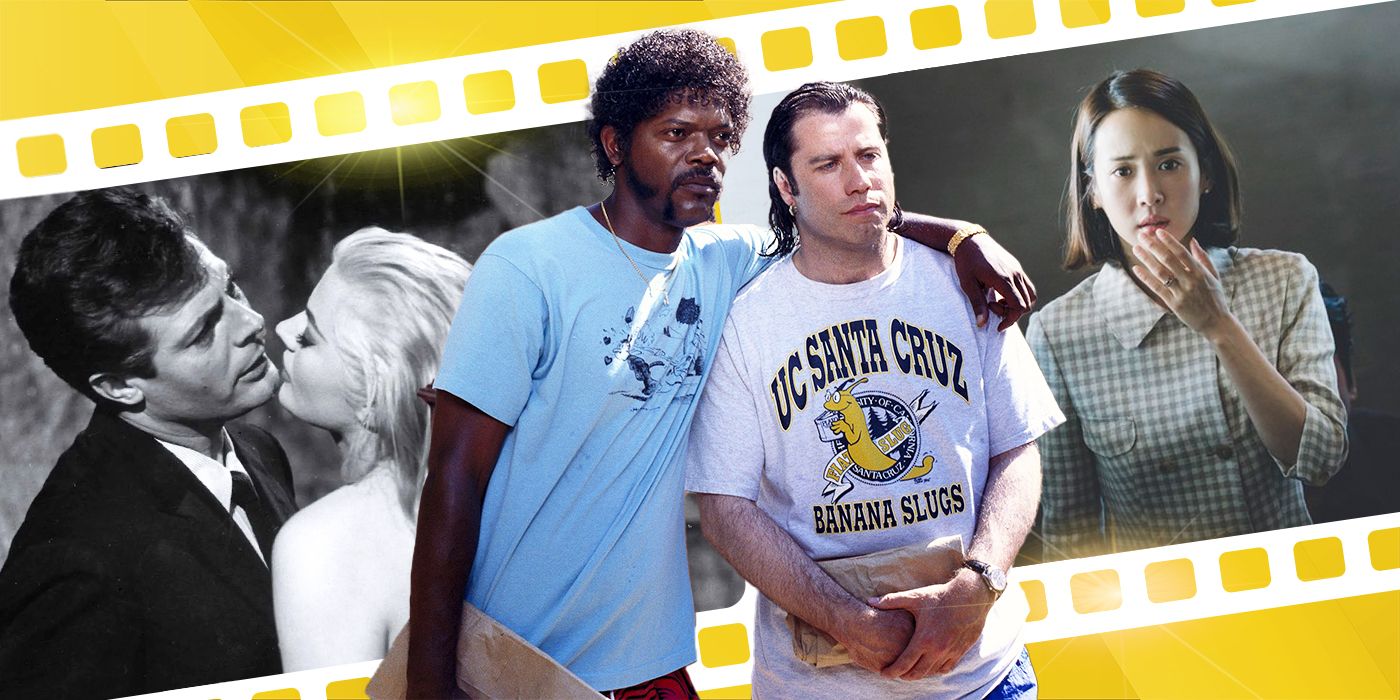
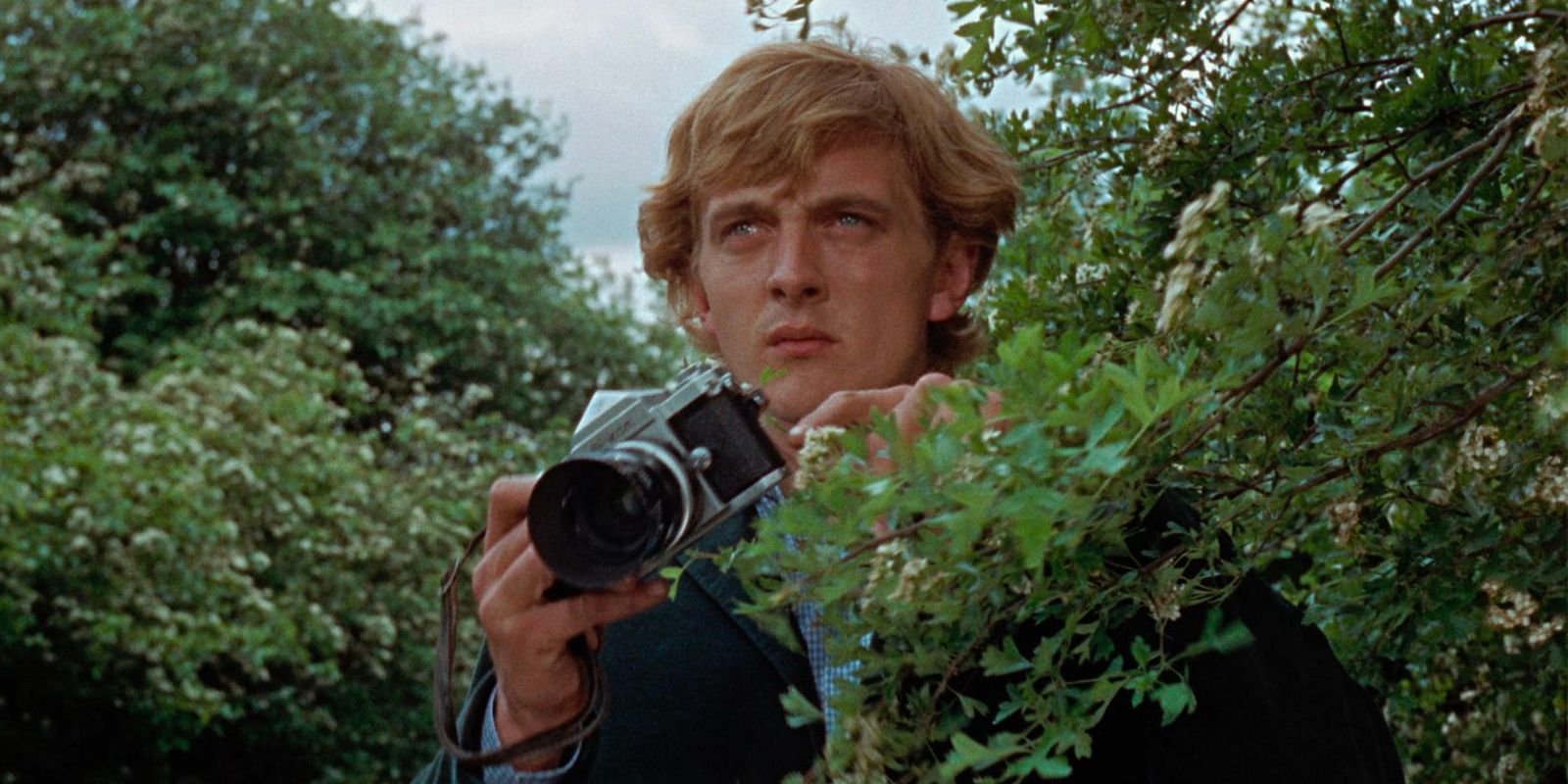
.jpg)
